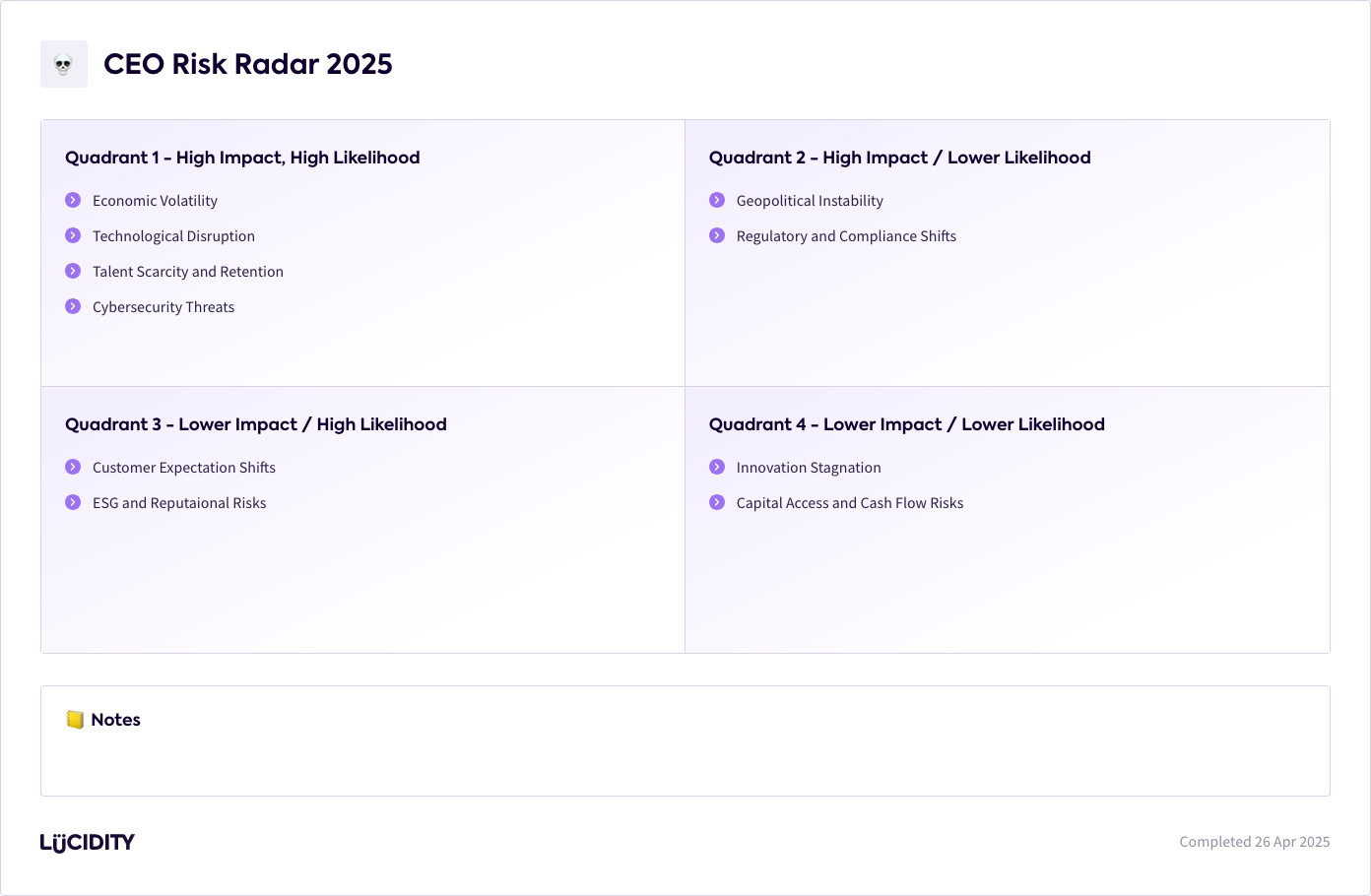In 2025, CEOs are navigating a much more complex and volatile landscape. Based on trends in tech, economics, geopolitics, and society, here are 10 major strategic risks that every business CEO needs to be thinking about:
- Economic Volatility
Recession fears, inflationary pressures, interest rate swings, and supply chain disruptions are still highly unpredictable — even in 2025. - Technological Disruption
AI (especially GenAI), automation, and emerging tech (like quantum computing) could rapidly change industries, leaving laggards exposed. - Cybersecurity Threats
Cyberattacks, ransomware, and IP theft are more sophisticated — and regulatory fines for breaches are heavier than ever. - Talent Scarcity and Retention
It’s no longer just about hiring — it’s about retaining and reskilling talent fast enough to meet new market needs, especially in tech and leadership roles. - Regulatory and Compliance Shifts
Governments are tightening rules on AI use, data privacy (beyond GDPR), environmental reporting, and financial transparency — creating hidden landmines. - Geopolitical Instability
Conflicts (think Taiwan, Ukraine, Middle East) and decoupling (like US-China tech tensions) can seriously impact global markets, supply chains, and expansion plans. - ESG and Reputation Risks
Environmental, Social, and Governance (ESG) standards are now table stakes. Failing to meet them isn’t just a brand hit — it can mean losing investors, partners, and customers. - Customer Expectation Shifts
B2B and B2C buyers expect ultra-personalized, digital-first experiences. Fall behind, and you risk irrelevance or disruption. - Innovation Stagnation
Failing to continuously innovate (products, services, or business models) leaves companies vulnerable to startups and big tech players moving faster. - Capital Access and Cash Flow Risks
VC and private equity funding is tightening. Lenders are cautious. Cash management is a strategic priority, not just a financial one.
Many CEOs still underestimate the strategic risks of not managing how AI is developed, adopted, and audited inside the business. In 2025, this is becoming a board-level responsibility.












